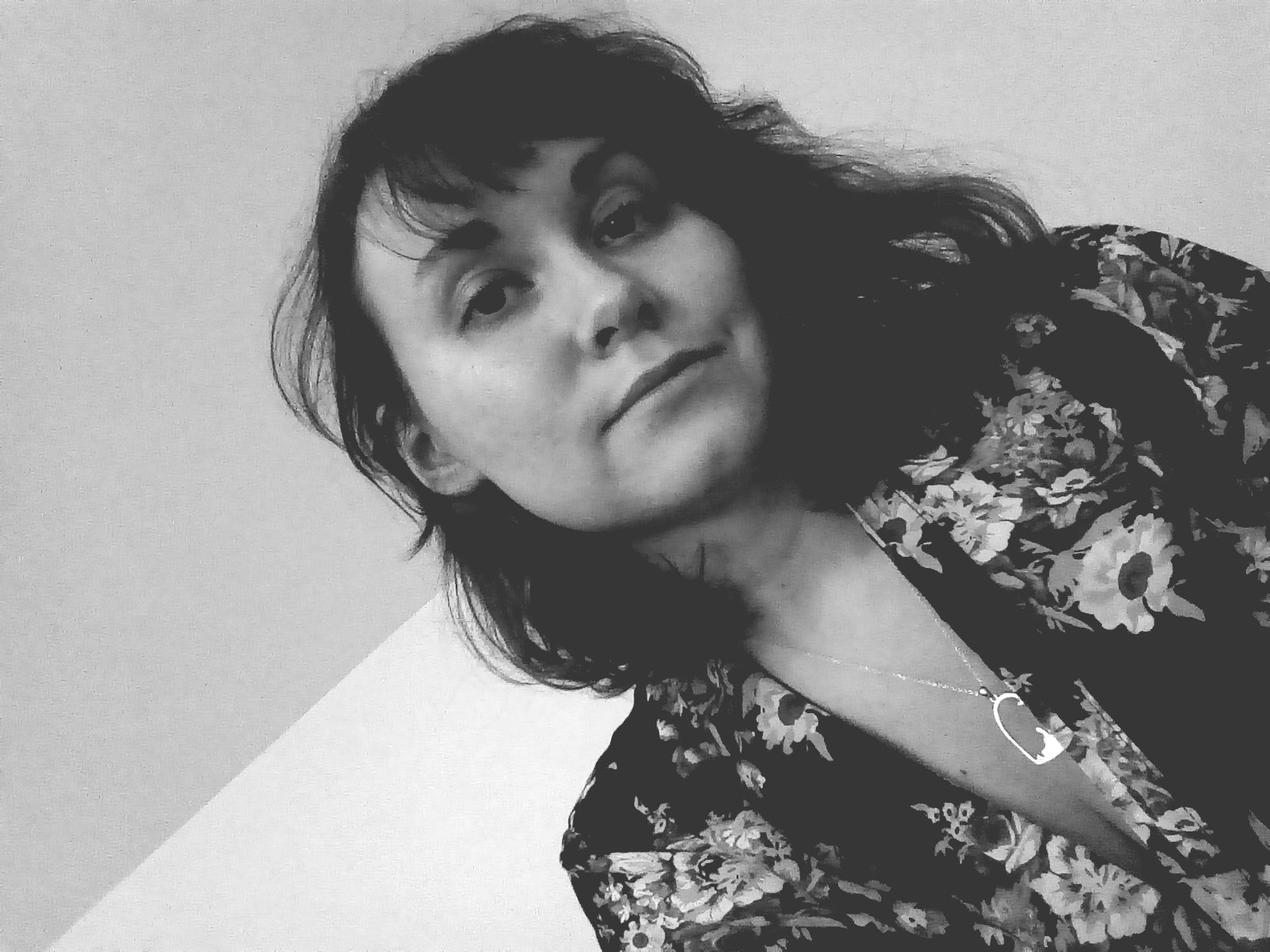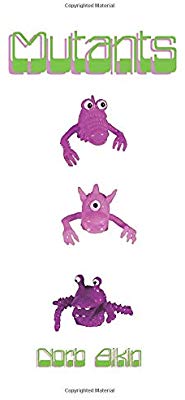ISSN: 1941-4137
POETRY THAT ENACTS THE ARTISTIC AND CREATIVE PURITY OF GLASS
POETRY THAT ENACTS THE ARTISTIC AND CREATIVE PURITY OF GLASS

Nadia Gerassimenko is the founding editor of Moonchild Magazine and proofreader at Red Raven Book Design. She is a freelancer in editorial services by trade, a poet and writer by choice, a moonchild and nightdreamer by spirit. Nadia self-published her first chapbook Moonchild Dreams (2015). At the water’s edge is her second chapbook, published by Rhythm & Bones Press (2019). Twitter: @moonmoonmother.
November 19, 2019
Edited by Stephanie Kaylor
Edited by Stephanie Kaylor
Review of Mutants by Norb Aikin
 Mutants
by Norb Aikin
Eliezer Tristan Publishing, 2019
Mutants by Norb Aikin (Eliezer Tristan Publishing, 2019) is a vital read for anyone struggling with chronic illness, anyone who has loved ones touched by chronic illness, anyone who wants to understand what chronic illness does to one's physical wellbeing and state of mind, anyone who wants to be a good advocate for the disenfranchised in the community.
Aikin does not shy away from hard truths that many undergo and feel but few feel they can say because there is still so much stigma and ignorance against people affected by chronic illness in our society today. Sharp and penetrating lines like "How can I be your railing / when it's me who needs / a stair?" in "Lower" and "I'm not sure if I'm / fixed enough to save you / without getting sucked in / again myself." in "Jennie 5: Thirty-x" relay superbly the struggles of trying to be present for others while trying to balance their own struggling and not make it physically and mentally worse for themselves — an unfortunately common experience.
Meanwhile aching, pensive lines like "The journey of a hundred trigger points / starts with the first flare-up, / where every day is a new discovery / of what hurts the most." in "Chronic Trip" and "I'm a body at peace on the surface,/ but my value isn't stating what my worth is." in "Sharpen A Corner" illuminate others on how it feels to live with chronic illness in concrete words and how it painfully robs one not only of their life but also of their confidence that they're invaluable, that they too matter.
Some of those who have never faced a debilitating, ongoing medical condition and are unaware of how agonizing, traumatic, alienating it can be may be well-meaning and may offer their thoughts and prayers, but it "neither heals nor solves". They may also shun those with chronic illness because "Yes, everyone wants a song! / But no one wants to know what goes into / the crafting and the performance." And that is a privilege, to tune out others dealing with disabling conditions or to put a check mark by tweeting thoughts and prayers without actually being there in a tangible way, until you're on the other side. Aikin calls it out, and that's imperative if we want a substantial change in our society.
While every poem in Mutants is heartrending, it's not unwarranted, because truth can hurt but also heal at least the heart of its burden and the community for speaking out and having productive and proactive conversations about chronic illness. And the most essential takeaway one should engrave in their mind and heart is that even if you have a chronic condition, you are "not one", you are "many" and you are "deserving of effort / just like everyone else is". In other words, you are a fascinating human worthy of being loved and cared for and valued.
Visit Eliezer Tristan Publishing' Website
Mutants
by Norb Aikin
Eliezer Tristan Publishing, 2019
Mutants by Norb Aikin (Eliezer Tristan Publishing, 2019) is a vital read for anyone struggling with chronic illness, anyone who has loved ones touched by chronic illness, anyone who wants to understand what chronic illness does to one's physical wellbeing and state of mind, anyone who wants to be a good advocate for the disenfranchised in the community.
Aikin does not shy away from hard truths that many undergo and feel but few feel they can say because there is still so much stigma and ignorance against people affected by chronic illness in our society today. Sharp and penetrating lines like "How can I be your railing / when it's me who needs / a stair?" in "Lower" and "I'm not sure if I'm / fixed enough to save you / without getting sucked in / again myself." in "Jennie 5: Thirty-x" relay superbly the struggles of trying to be present for others while trying to balance their own struggling and not make it physically and mentally worse for themselves — an unfortunately common experience.
Meanwhile aching, pensive lines like "The journey of a hundred trigger points / starts with the first flare-up, / where every day is a new discovery / of what hurts the most." in "Chronic Trip" and "I'm a body at peace on the surface,/ but my value isn't stating what my worth is." in "Sharpen A Corner" illuminate others on how it feels to live with chronic illness in concrete words and how it painfully robs one not only of their life but also of their confidence that they're invaluable, that they too matter.
Some of those who have never faced a debilitating, ongoing medical condition and are unaware of how agonizing, traumatic, alienating it can be may be well-meaning and may offer their thoughts and prayers, but it "neither heals nor solves". They may also shun those with chronic illness because "Yes, everyone wants a song! / But no one wants to know what goes into / the crafting and the performance." And that is a privilege, to tune out others dealing with disabling conditions or to put a check mark by tweeting thoughts and prayers without actually being there in a tangible way, until you're on the other side. Aikin calls it out, and that's imperative if we want a substantial change in our society.
While every poem in Mutants is heartrending, it's not unwarranted, because truth can hurt but also heal at least the heart of its burden and the community for speaking out and having productive and proactive conversations about chronic illness. And the most essential takeaway one should engrave in their mind and heart is that even if you have a chronic condition, you are "not one", you are "many" and you are "deserving of effort / just like everyone else is". In other words, you are a fascinating human worthy of being loved and cared for and valued.
Visit Eliezer Tristan Publishing' Website
Glass: A Journal of Poetry is published monthly by Glass Poetry Press.
All contents © the author.
All contents © the author.





